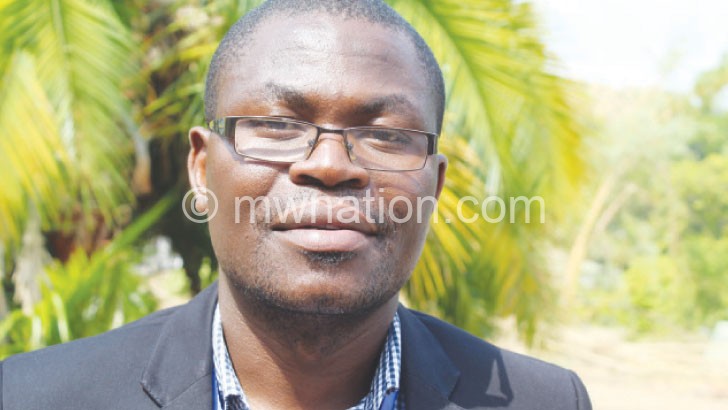Afrobarometer gives Tonse edge, no majority
Non-partisan pan-African research network, Afrobarometer, has given Tonse Alliance a slight edge over the DPP-UDF Alliance in the forthcoming fresh presidential election, but cautions that parameters point to a closely contested poll.
In its analysis dated May 20 2020 titled Malawians’ Voting Intentions Point to a Closely Contested Presidential Election, Afrobarometer says if Malawians’ voting intentions as expressed in late 2019 are held in the actual election and voters supported the candidate representing the alliance to which their respective party is affiliated to, the Tonse Alliance would poll 44 percent against 34 percent for the DPP-UDF Alliance.
In the analysis, Joseph Chunga, a research fellow at Centre for Social Research under the University of Malawi, also argues that while alliances expect voters to support their candidates, some voters may not like the alliance candidate or have some other reason to prefer to vote for another candidate or indeed abstain, leading to a loss of votes for the alliance partners.

In December 2019, Afrobarometer established that the governing Democratic Progressive Party (DPP) and opposition Malawi Congress Party (MCP) were tied at 32 percent each with the Malawians polled saying they would vote for them in a presidential election.
In the survey, the UTM Party—a new kid on the political block launched in July 2018 and led by the country’s estranged Vice-President Saulos Chilima—had a 12 percent approval rating while United Democratic Front (UDF) was given a two percent chance.
On the other hand, 22 percent of the respondents did not declare a voting intention or said they would not vote, according to a recent survey.
In the wake of the interpretation of “majority” in the presidential election to mean 50 percent-plus-one vote by a five-judge panel of the High Court sitting as the Constitutional Court and upheld by the seven-judge panel of the Malawi Supreme Court of Appeal, political parties have formed alliances in an apparent bid to garner the required majority.
DPP and UDF are on one ticket as is the case with MCP and UTM Party who have formed Tonse Alliance with seven other political parties, including People’s Party (PP) led by former president Joyce Banda.
But Chunga opines that some voters may not like the alliance candidates; hence, leading to a loss of votes for the alliance partners.
He says in the report: “If we ignore these realities and assume that the voting intentions expressed in late 2019 above held in the actual election and voters supported the candidate representing the alliance to which their party belongs, the MCP-UTM Party alliance [Tonse] would poll 44 percent [32 percent MCP plus 12 percent UTM Party] vs. 34 percent for the DPP-UDF Alliance [32 percent DPP plus two percent UDF].
“However, we do not know whether voting decisions might be affected by the way alliances have been forged.”
The analysis also shows that as of December 2019, DPP had 59 percent support in the Southern Region followed by UTM Party with eight percent while in the Central Region 55 percent of the respondents prefer MCP with DPP and UTM Party having one out of 10 nods from the respondents.
In the Northern Region, MCP had 46 percent approval followed by UTM Party at 32 percent and DPP on third position with 14 percent, according to the survey.
Reacting to the survey, MCP spokesperson the Reverend Munthali disputes that the election could be tightly contested, suggesting that their narrative to the polls is largely based on combined figures for MCP and UTM Party plus other alliance partners in the disputed presidential race in the May 21 2019 Tripartite Elections.
“If you go back to the 2019 figures, combine what Dr Lazarus Chakwera [MCP] and Dr Saulos Chilima [UTM] got, then other alliance partners, you will find that we are winning. I am not saying we are complacent because of those figures, but people want change,” he said.
Likewise, DPP spokesperson Nicholas Dausi yesterday also disputed the analysis, claiming that people have welcomed the DPP-UDF Alliance; hence, they will win with a clear majority.
He said: “There is no close contest here, who will vote for MCP? No way!”
In a separate interview, Makhumbo Munthali, a member of the Political Scientists Association of Malawi, said the value of alliance partners will be a key in determining factor.
He said: “UDF popularity has significantly decreased and I would predict UDF not adding more than four percent to the DPP-UDF Alliance.
“While UTM’s popularity has slightly decreased from 15 percent [according to the last Ipor study] to 12 percent, but looking at the areas where UTM boasts of some dominance, it would be difficult to see such percentage opting not to vote for MCP-UTM alliance.”
In the nullified May 21 2019 polls, President Peter Mutharika of DPP got 1 940 709 votes representing 38.57 percent while Chakwera had 1 781 740 votes (35.41 percent) and debutant Chilima 1 018 369 votes or 20.24 percent.





